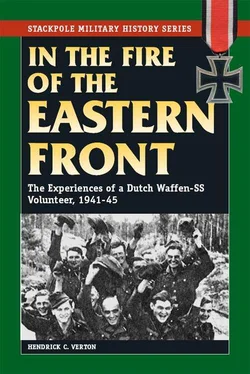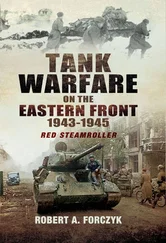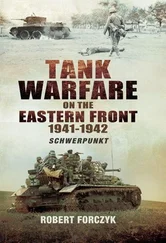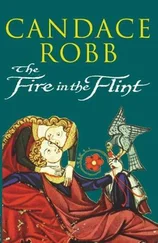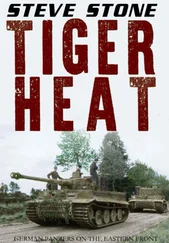We were born into an era which we could not determine, but which paved the way for something enormous. It was an era in which Communism was lifted out of its local setting and wanted to grow and spread throughout Europe. We banded together as its opponents, in wanting to ensure an honourable place for our nation, within the nations and new community of Europe.
We believed that with our ‘élite organisation’ of not only upright German, but European ‘volunteers’ from the north-westerly lands, following the victory against communism, we could produce a reform, a Perestroika so to speak. With our participation in the Waffen SS we were treated on an equal basis, as every other. Some of us advanced to ranks above German soldiers, such as the battalion commander who was a Dane, or like my brother Evert, a Dutchman, or I too, on a smaller scale, with 12 to 48 German soldiers under my command.
In Bad Tölz at the Junkerschule, the party programme of the NSDAP was discussed amongst us, and dissected and criticised by the European officers, without any disciplinary action. What we practised, on a small-scale, gave us hope for the future, with not only Germany destined to lead. Was that to be Utopia, only an illusion? Perhaps, but we thought then that it was possible. ‘Lady luck’ didn’t see it like that. She saw to it that, after a lost war, we analysed and learned from this analysis.
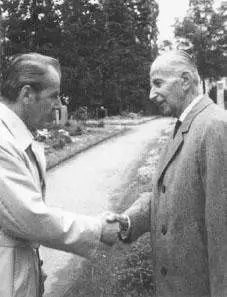
Hendrik Verton and Paul Hausser, Stuttgart, 1970
A life without a zenith, a youth without reaching the heights or without ideals, was not for us. We lived in a time that needed the utmost effort. Perhaps it was the best that could have happened at that time in our manhood. It was a probation period for us that we came through with flying colours. Those of us who feel guilty must bow to that guilt. Today, what we fight against, whether as an individual or as a group, is the refusal of individuality, which is unjust and basically immoral!
“Everything that is unjust nurtures the seed of destruction.”
Alexander von Humbolt
Asaga, that long epic of heroic achievement, in Medieval prose, was narrative of a long, involved account of a series of incidents. But it is not the same as a fairy-tale in prose. I guarantee that nothing of my account is a fairy story. My feelings and views from that period of my past are also honest.
In my narration I have not tried to glorify, but to present a document that is as correct as an eyewitness from that era can describe. In this present day such a document is a bitter necessity. The past was not always ideal, for us or our opponents. I felt neither wistfulness nor nostalgic longings in writing my book. The facts therein are pure unadulterated facts that are not to be twisted by others for their own false ends. My life was and is worth living.
With this Epilogue I wish to give my heartfelt thanks to my comrade and former Second World War officer and Oberstleutnant of the Wehrmacht Adolf Kruger, who read my book as a competent editor and corrected it. The same applies to Heid Ruhl, another former wartime officer and later senior teacher, who also assessed and gave a criticism on my book. Further thanks go to my brother-in-law, Dip.Eng. Jan Carl van dem Berge, and to Mrs Birgit Guden who typed my handwritten manuscript.
Hendrik Verton, Spring 2003
Federal Republic of Germany
Federal Chancellor
Bonn 17.12 1952
General (Retd) P. Hausser
Ludwigsburg / Wittenburg
48 Asperger Street
My Dear General,
In retrospect, I would like to send you encouraging information, that in my speech that I gave in Parliament on 3 December 1952, one topic embraced the Declaration of Confidence for the former German Wehrmacht, inclusive with the members of the Waffen SS, inasmuch as they fought honourably for Germany, their Fatherland.
I remain, in deep respect,
Adenauer.
Ahlfen, Hans von and Hermann Niehoff, So kämpfte Breslau, Gräfe und Unzer Verlag, München 1959
Bamm, Peter, Die unsichtbare Flagge, Wissen Verlagsges., Herrsching 1989
Bacque, James, Der geplante Tod, Ullstein, Frankfurt/Main 1989
Barraclough, Geoffrey, Die Einheit Europas in Gedanken und Tat, Göttingen 1964
Carell, Paul, Unternehmen Barbarossa, Ullstein, Frankfurt/Main 1963
Delmer, Sefton, Die Deutschen und ich, Nannen-Verlag, Hamburg 1962
Bundesministerium für Vertriebene (Hrsg.), Dokumentation der Vertreibung, Berlin 1957
Groen, Koos, Landverraad, Unieboek, Weesp 1984
Gleis, Horst G. W., Breslauer Apokalypse 1945, 1988
Haas, Georg, Brände an der Oder, Ring-Verlag, Siegburg 1962
Haas, Georg, Und gaben die Hoffnung nicht auf, Ring-Verlag, Siegburg 1962
Hausser, Paul, Soldaten wie andere auch, Munin Verlag, Osnabrück 1966
Helmdach, Erich, Überfall?, Kurt Vowinckel Verlag, Neckargemünd 1976
Höhne, Heinz, Der Orden unter dem Totenkopf, Berteismann, Gütersloh 1967
Höhne, Heinz, Gebt mir vier Jahre Zeit, Ullstein, Berlin 1996
Hornig, Ernst, Breslau 1945, Bergstadt-Verlag, München 1975
Hoy, Werner, Festung Breslau, Moewig Verlag, 1958
Irving, David, Hitler und seine Feldherren, Ullstein, Frankfurt 1975
Kaps, Johannes, Die Tragödie Schlesiens 1945/46, Verlag Christ Unterwegs, München 1952
Kern, Erich, Der große Rausch, Verlag K. W. Schütz, Oldendorf 1971
Kleist, Peter, Auch Du warst dabei, Kurt Vowinckel Verlag, Heidelberg 1952
Kogelfranz (Hrsg.), Siegfried, Die Vertriebenen, Rowohlt, Hamburg 1985
Majewski, Ryszard and Teresa Sozanska, Die Schlacht um Breslau, Union Verlag, Berlin, 1979
Neulen, Hans Werner, An deutscher Seite, Universitas, München 1985
Paul, Wolfgang, Erfrorener Sieg, Bechtle Verlag, Esslingen 1975
Peikert, Paul, Festung Breslau, Union Verlag Berlin, 1966
Ryan, Cornelius, Der letzte Kampf, Droemer-Knaur-Verlag, München 1966
Steiner, Felix, Die Freiwilligen, Verlag K. W. Schütz, Oldendorf 1973
Strassner, Peter, Europäische Freiwillige, Nation Europa Verlag, Coburg 2001
Suworow, Viktor, Der Eisbrecher, Klett-Cotta-Verlag, Stuttgart 1989
Tayior, Alan John, English History 1914-1945, 1965
Telpukowski, B. S., Geschichte der Partisanenbewegung
Treffner, Helmut, Geschichte der Waffen-SS
Vaart Smit, H. W. van der, Kamptoestanden 1944—1948, Verlag Keizerskroon, Haarlem 1949
Vorst-Thijssen and De Boer, Daarpraat je niet over — Kinderen van foute ouders, Utrecht 1995
Zappel, Albrecht, Vorträge über die Geschichte Breslaus, 1993
Zayas, Alfred-Maurice de and Walter Rabus, Völkerrechtsverletzungen der Alliierten im Zweiten Weltkrieg, Langen Müller, München 1980
Werth, Alexander, Russia at war, London 1964
Zentner, Kurt, Aufstieg aus dem Nichts, Kiepenheuer & Witsch, Köln 1954
The Stackpole Military History Series
THE AMERICAN CIVIL WAR
Cavalry Raids of the Civil War
Ghost, Thunderbolt, and Wizard
Pickett’s Charge
Witness to Gettysburg
WORLD WAR I
Doughboy War
WORLD WAR II
After D-Day
Читать дальше
